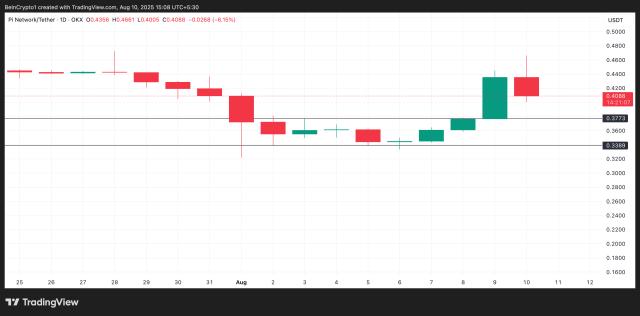The cryptocurrency market is witnessing an increase in acceptance, with assets reaching record highs. Moreover, stablecoin has emerged as an important platform for this expansion and has proven to be the backbone of the real economy.
However, Christopher Perkins, President of CoinFund, warns that 'security' remains the biggest risk to the growth of stablecoin. In an exclusive interview with BeInCrypto, Perkins proposed a 'new privatization program'. He discussed how applying this could be the best defense against the next billion-dollar valuation attacks.
Stablecoins are Growing—But Are Hackers Winning the Race?
Stablecoin, an asset pegged to fiat currency, has grown strongly recently, and this is not without reason. Acceptance is driven by several key factors. These include efficiency, demand in unstable economies, increased TradFi acceptance, clearer regulatory frameworks, and benefits in cost and transparency.
BeInCrypto recently reported that the number of wallets holding stablecoin has officially surpassed the number of wallets holding Solana (SOL), emphasizing its growing dominance.
Notably, many expect the stablecoin market to continue expanding. The US Treasury forecasts that market capitalization could reach $2 trillion by 2028. Meanwhile, Citigroup predicts it could reach $3.7 trillion by 2030.
Despite positive prospects, Christopher Perkins warns about security risks, not just for stablecoin. Perkins notes that the nearly $4 trillion cryptocurrency market also faces similar challenges. Therefore, strengthening security measures will become increasingly important as more value is transferred on-chain.
"State and non-state sponsored criminal organizations are salivating as thousands of billions in stablecoin enter the system," he said.
Perkins notes that stablecoin complying with the GENIUS Act is likely to have 'freeze and seizure' integration. This allows authorities to seize reserves and burn tokens in illegal situations. However, he says the legal process takes time, and hackers move much faster.
Furthermore, the executive emphasizes that blockchain provides excellent forensic capabilities in case of hacking, helping to trace illegal activities. However, Perkins points out that sophisticated hackers, often state-sponsored, continuously develop new techniques, which will become even more powerful as AI and deepfake become more advanced.
"In my opinion, we need a solution from the private sector. To me, the solution is a new privatization program that leverages the skills and sophistication of the private sector at low cost to taxpayers. In other words, the best defense... is offense," he told BeInCrypto.
Is the Private Sector the Solution to Crypto's Security Crisis? Perkins Thinks So
So, what does this new privatization include? Perkins, who has written about the new privatization concept with Chris Giancarlo, senior advisor at Willkie Farr & Gallagher, and former CFTC chairman, explains that it involves empowering agile startups and decentralized groups to participate in building cryptocurrency infrastructure to quickly target and seize assets or assets from opponents.
Perkins argues that these groups are necessary to promote cryptocurrency technology adoption and protect national security.
"Privatizations played a crucial role in America's victory in the Revolutionary War. Our Founding Fathers valued privatization so much that they recognized this practice in Article I of the Constitution, allowing Congress to grant 'Letters of Marque and Reprisal,'" he commented.
The CoinFund President supports reviving the 'privatization mindset', where the private sector plays an active role in protecting and expanding the cryptocurrency space.
"Today, a new privatization program could be used to restore security across the entire cryptocurrency space. By leveraging the sophistication of the private sector, new privatizations can attack designated opponents by proactively hacking and seizing assets from illegal actors. By expanding a security umbrella patrolled by new privatizations, cryptocurrency entrepreneurs will return to the United States," he revealed to BeInCrypto.
Neo-Privateering: A Cost-Effective Solution for Crypto Security
The executive also emphasized that recruiting and retaining talent capable of competing with well-funded, state-backed entities is both expensive and challenging for governments. Therefore, the new privatization addresses this issue.
"In America, perhaps the original public-private partner, privatizations can provide a solution at low cost to taxpayers. In fact, seized assets could also help fund a strategic Bitcoin reserve," he noted.
Although all this sounds quite beneficial, privatization also raises ethical concerns. Perkins emphasizes that previous privatizations had to put up a bond. This could be lost if they violate their authorized actions.
A modern version of this approach may involve individuals Staking assets to ensure responsibility. Blockchain technology provides clear, traceable records of activities, making it easy to monitor privatizations and ensure their actions align with any issued mandates.






